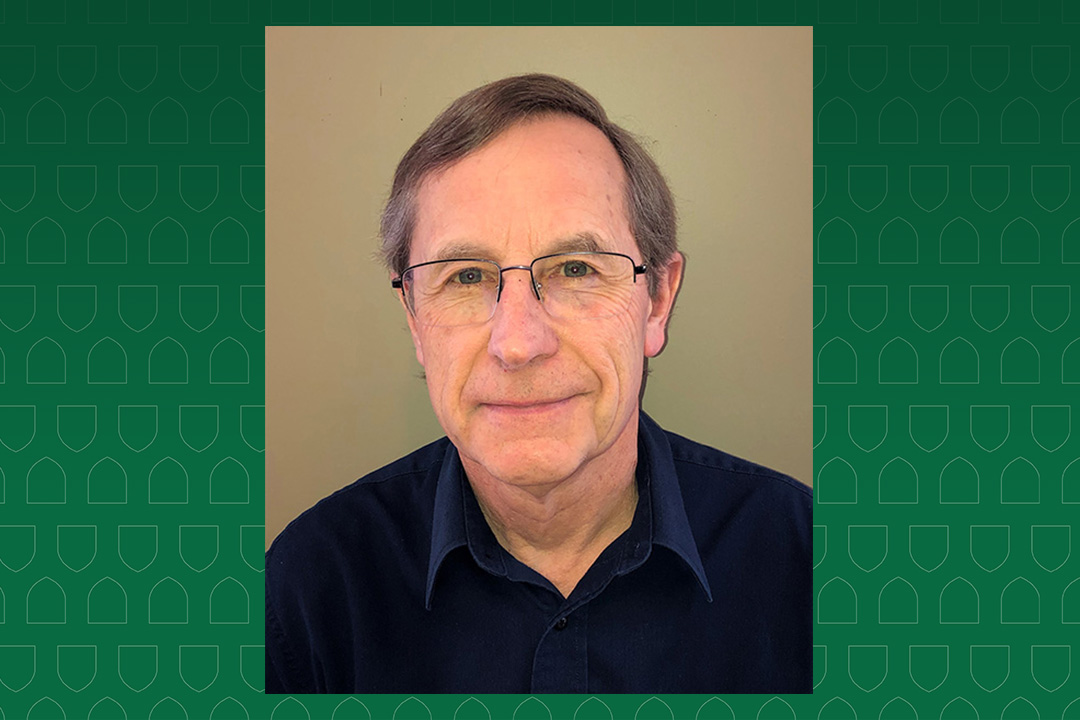
Distinguished professor works with Indigenous communities
On Oct. 24, 2018, in front of a crowd gathered at the Gordon Oakes Red Bear Student Centre, Dr. James B. (Jim) Waldram (PhD) read a statement on reconciliation.
By Shannon BoklaschukThe long-time University of Saskatchewan (USask) faculty member spoke on behalf of the Department of Archaeology and Anthropology, acknowledging past wrongs in the practice of anthropology and archaeology and affirming the department’s commitment to an approach based on mutual trust and partnerships with Indigenous communities.
The creation of the statement, which was prompted by the department’s 50th anniversary in 2018, “provided a great opportunity to launch the new era of our work as engaged scholars,” Waldram said at the time.
When asked about the statement in a recent interview, Waldram noted that archaeology and anthropology, as a discipline, has a “special responsibility” to Indigenous peoples.
“The discipline was the first to engage with Indigenous peoples in research and advocacy, and because such initiatives are always products of the times, there is deep regret over how that was done. We have worked collaboratively with Indigenous peoples for decades, but the legacy of an extractive discipline remains,” he said.
“In effect, (in recent years the department was) engaged in reconciliation-like activities anyway, and so it made sense to action our responsibility to bring the university’s commitment to reconciliation down to the local level, so to speak, and show our inherent leadership. We continue to build on this initiative.”
Waldram, a medical and applied anthropologist, has long worked thoughtfully and collaboratively with Indigenous communities in Canada and Belize. Highly regarded as an international authority in the study of Indigenous mental health issues and the cultural bases of treatment and healing, his work has included groundbreaking ethnographic studies of therapeutic programs for criminal offenders, as well as of Indigenous health and mental health policies.
Waldram’s passion for working with Indigenous communities dates back to his early graduate student days at the University of Manitoba in the 1970s, when he was invited to explore the impacts of hydro dams on Cree communities in northern Manitoba. After earning a master’s degree, he went on to complete a PhD at the University of Connecticut before being recruited to USask’s newly formed Department of Native Studies (now the Department of Indigenous Studies) in the College of Arts and Science.
“There were few jobs in my field back then,” Waldram recalled. “They were looking for a specialist in Indigenous health, and there were very few around because the field itself had really not even been invented yet. I actually designed and taught the very first university-level course on Indigenous health in Canada.”
Over the course of nearly four decades at USask, Waldram has served as a faculty member in three departments—Indigenous studies, psychology, and archaeology and anthropology—earning the respect of Indigenous communities, students, researchers, and colleagues, as well as many awards and accolades, along the way. In 2013, Waldram won the university’s Distinguished Researcher Award and in2014 was named a Fellow of the Royal Society of Canada—one of the country’s highest academic honours. In 2016, he was celebrated in Ottawa by the Social Sciences and Humanities Research Council of Canada (SSHRC) as one of five national recipients of SSHRC Impact awards.
On Jan. 1, 2021, USask’s Distinguished Professorship Advisory Committee bestowed Waldram with the title of distinguished professor, meant to honour and celebrate exceptional achievement in research, scholarly, or artistic work by faculty or emeriti. He described receiving the honorary title “as a wonderful affirmation that all the work and stress was worth it” throughout his academic career.
“It is an individual honour, of course, but one that is really a product of great community collaborators who placed trust in me, and great colleagues in departments whose own efforts facilitated my work in so many ways,” he said. “None of us can do this job on our own.”
Over the years, Waldram has been lauded for his ethnographic research in more than two dozen Indigenous Canadian communities, prisons, and clinics, as well as for his work with Q’eqchi’ peoples in Belize. His recent book, An Imperative to Cure: Principles and Practice of Q’eqchi’ Maya Medicine in Belize, published in November 2020, documents the practices of a group of Q’eqchi’ medical practitioners and outlines the structure and principles of their extensive system of medical knowledge.
“The Q’eqchi’ medical practitioners with whom I work and who invited me to do the research requested that I write, in part, for the medical and government professionals, and global scholars, to share their medical knowledge,” Waldram said. “Their understanding is that these professionals shape and affect health policy, and they wished to have their medical practice recognized as on par with biomedicine. I have also produced a variety of publicly accessible works, including a film, in the Q’eqchi’ language for distribution in Belize.”
One of the ways Waldram believes archaeologists and anthropologists can contribute to reconciliation is “through correcting the mistakes of the past, as much as possible.”
“This is why my department is engaged in repatriation efforts, to return previously collected material items to communities that so wish,” he said. “Also, our contemporary work with Indigenous peoples stands as a model of best practices for collaborative research and knowledge mobilization.”

